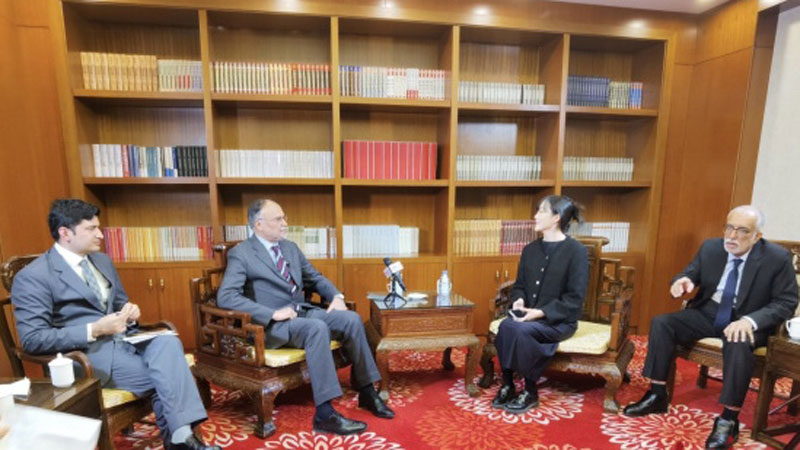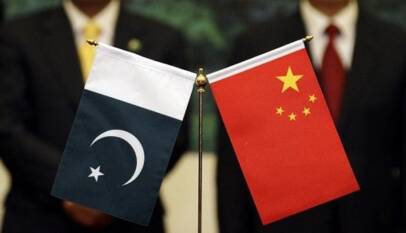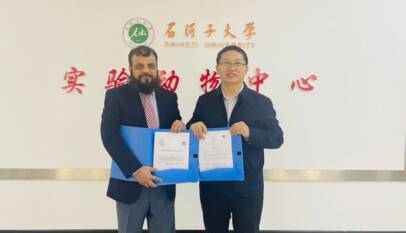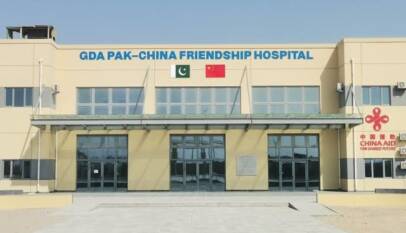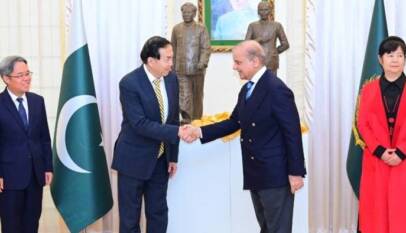Ahsan Iqbal lauds China-Pakistan “Iron Brother” bond, envisions high-tech future in CPEC phase II
Pakistan’s Minister for Planning, Development, and Special Initiatives, Ahsan Iqbal, celebrated the enduring “iron brother” relationship between Pakistan and China, describing it as a garden in perpetual spring. Speaking to China Economic Net, he highlighted the transformative impact of the China-Pakistan Economic Corridor (CPEC) in its first decade, including energy advancements, digital infrastructure, and modern connectivity. As CPEC enters its second phase, the focus will shift to high-quality modernization, with key priorities in technology, sustainability, and regional cooperation. Iqbal emphasized Pakistan’s commitment to safeguarding Chinese projects and fostering technological and trade collaborations, particularly in agriculture and IT, while underscoring the unbreakable bond between the two nations.
Pakistan’s Minister for Planning, Development, and Special Initiatives, Ahsan Iqbal, lauded the “iron brother” relationship between Pakistan and China on Wednesday, likening the partnership to a garden that only experiences spring.
He emphasized the enduring mutual affection between the two nations and highlighted the significant role of the China-Pakistan Economic Corridor (CPEC) in driving economic development.
In an interview with China Economic Net, Iqbal noted the relationship between China and Pakistan has flourished over decades and culminated in the development of CPEC as part of China’s Belt and Road Initiative (BRI).
“In 2022, we faced a significant disaster in the form of floods and rains, costing Pakistan’s economy $30 billion. We are looking to learn from China in environmental issues,” he added.
Reflecting on CPEC’s first decade, Iqbal underscored its crucial contributions to Pakistan’s economic growth.
The addition of 8,000 megawatts of energy helped Pakistan overcome the power crisis of 2013.
Modern highways and motorways have connected regions, stimulating greater economic activity.
The installation of a fiber optic cable has strengthened Pakistan’s digital infrastructure, linking the country with China.
Iqbal also highlighted the progress at Gwadar Port, envisioning it as a “smart port” with vast potential to become a regional trade hub by connecting the Arabian Sea and the Indian Ocean to western China, Central Asia, and beyond.
For the upcoming second phase of CPEC, Iqbal outlined an ambitious vision for the high-quality modernization of Pakistan’s economy with Chinese technological assistance.
This phase will focus on five key corridors: the Growth Corridor to drive economic expansion, the Livelihood Corridor to enhance living standards and create jobs, the Innovation Corridor to foster technological advancements, the Green Economy Corridor to promote sustainable development and renewable energy, and the Open and Inclusive Development Corridor to encourage regional cooperation and integration.
“Pakistan has introduced a ‘5Es’ framework to align with these goals: Export-Led Growth, E-Pakistan, Environment and Climate Change, Energy and Infrastructure, and Equity and Empowerment,” he added.
Following the 2024 China Central Economic Work Conference (CEWC), which emphasized high-quality Belt and Road cooperation and enhancing the overseas service system, Minister for Planning, Development, and Special Initiatives, Professor Ahsan Iqbal highlighted China’s significant progress in economic innovation and new technologies, according to another of CEN.
He noted that through the second phase of the China-Pakistan Economic Corridor (CPEC), Pakistan will not only receive support from China but also collaborate in technological development, benefiting from cutting-edge research and continuous innovation.
According to China Economic Net, the minister stressed that the adoption of high-quality new technologies will significantly benefit Pakistan, especially in its agricultural sector, as the country aims to boost exports and enhance productivity and competitiveness in industry.
With a youthful population skilled in information technology, Pakistan sees potential for cooperation in developing a robust digital technology platform.
The minister, currently on a visit to China, addressed a press conference where he answered questions on new technological innovations, energy, environmental, and trade cooperation between the two countries.
He emphasized, “There is a strong, unconditional bond between the people of Pakistan and China,” reiterating that those behind terrorist activities aimed at undermining the tremendous progress made under CPEC would not succeed.
“Pakistan has dedicated over 12,000 full-time army personnel to safeguard Chinese projects. In addition, counterterrorism and police forces are committed to protecting the Chinese workers.
We view the Chinese workers in Pakistan as our national guests, contributing to Pakistan’s development,” the minister added.
China gains access to UAE via Pakistan for goods trade
In a major development, the National Logistics Corporation (NLC) has officially initiated …



